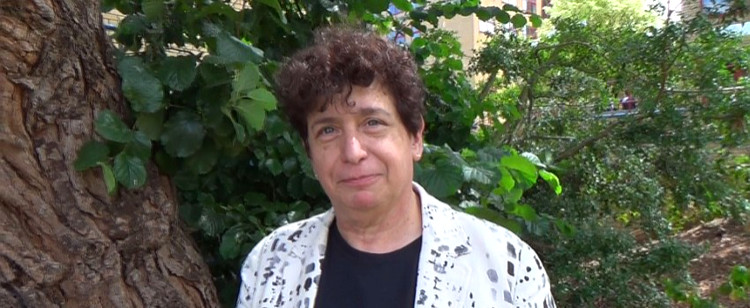
In deze nieuwe serie interviewt ZorgEthiek.nu vooraanstaande nationale en internationale zorgethici. Joan Tronto is als eerste aan de beurt.
Joan Tronto is professor of political science and women’s studies at CUNY and author of Moral Boundaries: A Political Argument for an Ethic of Care.
1. Where are your working at this moment?
Currently I teach at Hunter College, CUNY, New York City. In September I move to the University of Minnesota, Department of Political Science. (update 2011: Joan Tronto has moved to the University of Minnesota.)
2. Can you tell us about your research and its relation to the ethics of care?
My research is primarily theoretical, exploring the nature of the care ethics itself. Currently I am completing a book about the relationship of care ethics and democratic theory.
I have also been writing and thinking about the global trade in care workers and how that question should be approached from the standpoint of an ethic of care.
3. How did you get involved into the ethics of care?
I read Carol Gilligan’s In a Different Voice in the early 1980s and I have been promoting these ideas ever since.
4. How would you define ethics of care?
An ethic of care is an approach to personal, social, moral, and political life that starts from the reality that all human beings need and receive care and give care to others. The care relationships among humans are part of what mark us as human beings. We are always interdependent beings.
5. What is the most important thing you learned from the ethics of care?
It is as important to realize that we are receivers as givers of care, acted upon as well as agents. This is a difficult position to understand politically, but strength and human cooperation can arise from our recognition of our mutual interdependence.
6. Whom do you consider to be your most important teacher(s) in this area?
My most important teachers are both feminist scholars of care, such as Carol Gilligan, Sara Ruddick, my co-author Berenice Fisher, Selma Sevenhuijsen, Virginia Held, Fiona Williams, Fiona Robinson, etc. I disagree in some fundamental ways with Nel Noddings, Eva Kittay, Michael Slote, Daniel Engster, but I find their writings inspiring.
Also, I am influenced by Foucault, and sympathetic to the views expressed by Heidegger, Levinas, Derrida, and other post-structuralists. My Dutch colleague Henk Manschot inspired me to think along these lines some years ago.
I also rely quite heavily on the account of metaethics offered by Margaret Walker.
As a political theorist, I am a small “d” democrat. I find inspiration in the great writings of Marx, Machiavelli, Hannah Arendt, Simone Weil. But I am no follower of any of these thinkers in particular.
7. What works of in the ethics of care do you see as the most important?
This is a difficult question, I learn so much from all of the readings that I do. I read widely in the ethics of care in: philosophy, sociology, bioethics, political science, public policy, religion, geography.
I have read Annelies van Heyst’s Menslievende zorg with great interest. Several Canadian writers have been writing about care ethics from a policy perspective that is very inspiring: Olena Hankivsky, Paul Kershaw.
While Carol Gilligan does not use the language of “care” in The Birth of Pleasure, it is also an important set of perspectives on care.
8. Which of your own books/articles should we read?
Start with Moral Boundaries.
9. What are important issues for the ethics of care in the future?
I think an ethics of care needs to understand itself locally as well as globally, from the standpoint of the most vulnerable and most privileged receivers of care.
The next big question that I want to consider, too, is the nature of caring and uncaring institutions.
10. It is our ambition is to promote ethics of care nationally and internationally. Do you have any recommendations or wishes?
Just—keep up your excellent work!

0 reacties